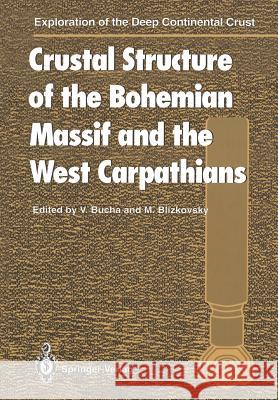Crustal Structure of the Bohemian Massif and the West Carpathians » książka
Crustal Structure of the Bohemian Massif and the West Carpathians
ISBN-13: 9783642789977 / Angielski / Miękka / 2011 / 355 str.
The earth is seen as a dynamic body undergoing convection that is driven by its internal heat. The elucidation of the nature and evolution of the earth's lithosphere, that has provided all minerals and energy resources and the space in which we live is one of the principal motives behind the International Program "Dynamics and Evolution of the Lithosphere." A full understanding of the lithosphere requires further research especially on the continents and their margins: while the oceanic lithosphere cools and subsides as it flows away from the zone of upwelling, the continents, because of their different composition, remain buoyant in the mantle and survive over major portions of the earth's history. In trying to produce full confirmation of the validity of sea floor spreading and lithosphere subduction, Central Europe became more and more a crucial case. The deformation of continental plates is, however, more complex than that of the ocean-floor pattern. No discrete boundary exists between both the African and Eurasian plates. A number of unanswered questions arise e.g. whether African crust has overridden Europe, or European lithosphere collided in the ranges of Atlas of Algeria. The work of German, French and Suiss geologists accomplished much during this century. Central Europe has come to serve as a test site for the refinement of plate tectonics. A new understanding of the crustal dynamics of Central Europe was born with the aim of explaining its structural evolution.











